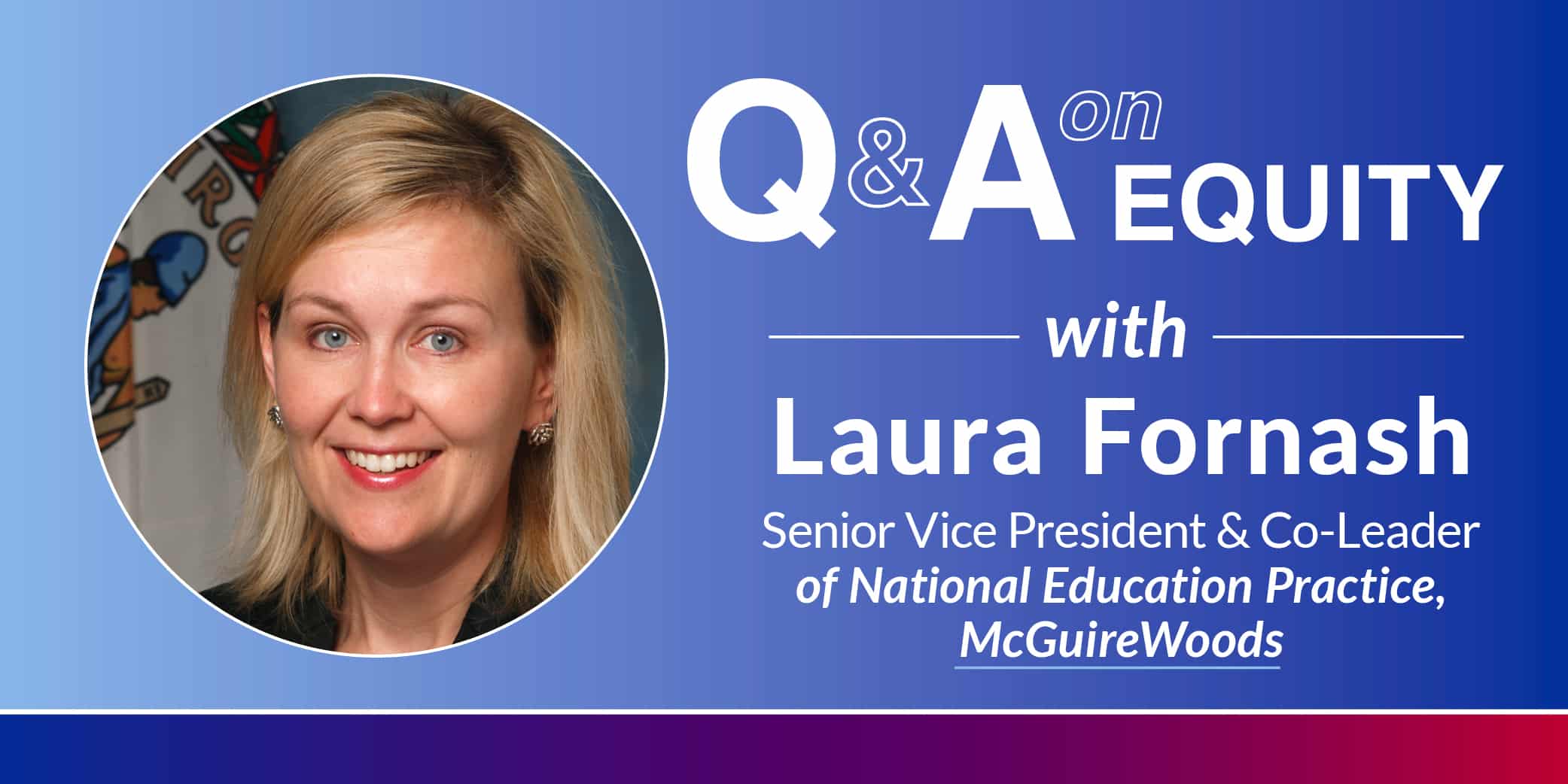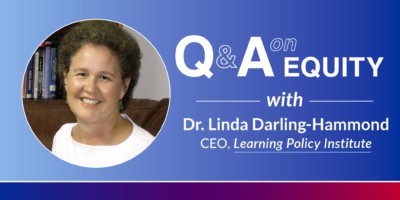

Q: How do you define equity in higher education?
A: In higher education, a troubling opportunity gap exists. Year after year, we see minority and low-income students enroll in and graduate from institutions of higher education at lower rates than their more advantaged peers. A recent report by the National Student Clearing House Research Center found that the national six-year completion rate for students who start at a four-year institution is 62.4 percent. When you break this down by race, the rate drops to 45.9 percent for black students, 55 percent for Hispanic students, and 67.2 percent for white students. These statistics highlight the ongoing challenge to not only increase the overall average number of students graduating with postsecondary credentials but also to ensure we are supporting success for all students.
Further, we need more degree and credentialed citizens prepared to enter/re-enter the workforce to provide opportunities for growing our local, state, and federal economies. Thanks to the great work of the Lumina Foundation, HCM Strategists, Complete College America, and other initiatives, the nation is laser focused on degree completion and credential attainment. States and higher education institutions are developing innovative ways to encourage timely degree completion through alternative degree and credential paths. Furthermore, some states like Tennessee, Ohio, and Indiana are financially rewarding institutions who retain and complete students through outcome-based funding models.
In addition to the economic benefits of post-secondary education, numerous studies tout health and welfare benefits for students who earn degrees from institutions of higher education. According to the Georgetown University Center on Education and the Workforce, college graduates earn, on average, 84 percent, or $1 million, more over a lifetime than individuals with only a high school diploma.
Q: What programs are helping to address access to post-secondary institutions?
A: I am a big fan of postsecondary access providers. In Virginia, we are fortunate to have a number of non-profit organizations focused on creating greater access to our two- and four-year higher education institutions. For example, the Greater Aspirations Scholarship Program (GRASP), trains and embeds college advisors into local high schools. The advisors help students and families complete the FASFA, find scholarships, grants, and loans, as well as help identify colleges and universities that are a good match for the student’s interests and capabilities. They also engage private philanthropists to provide students with last dollar scholarships.
The College Advising Corps, a national program which originated at the University of Virginia, embeds recent university graduates in underserved areas to aid with FASFA completion and to assist students in navigating the complex application process. The Corps has grown to support 600 high schools in 14 states. Without these types of programs, thousands of young people would struggle and potentially give up pursuing postsecondary education.
Q: How can elementary and secondary schools help address the equity challenges in college access?
A: The nation’s elementary and secondary schools can play a role in ensuring access to postsecondary education. We need to ensure that all students are exposed to a wide range of experiences that get them to begin thinking about college and allow them to envision themselves attending an institution of higher education.
We also need greater diversity in the classroom. We need more programs that put role models and mentors in our elementary and middle schools who can help begin to nurture a college-going culture. An initiative to watch is the Leading Men Fellowship Program in D.C. Public Schools. The school system has partnered with the Literacy Lab to embed D.C. Public School graduates in elementary schools to serve as literacy coaches. The program shows promise both for the students, who benefit from additional instructional support, and for the literacy coaches, who are encouraged to pursue an education degree after the program concludes.
And lastly, I am hopeful through the impactful work of the Hunt-Kean Leadership Fellows Program, we will have more leaders in our nation focused on equity in education and ensuring every person has access to a high-quality education, no matter what their zip code.
Editor’s Note: This article was originally published as a blog post by the Hunt Institute and has been republished with permission.


